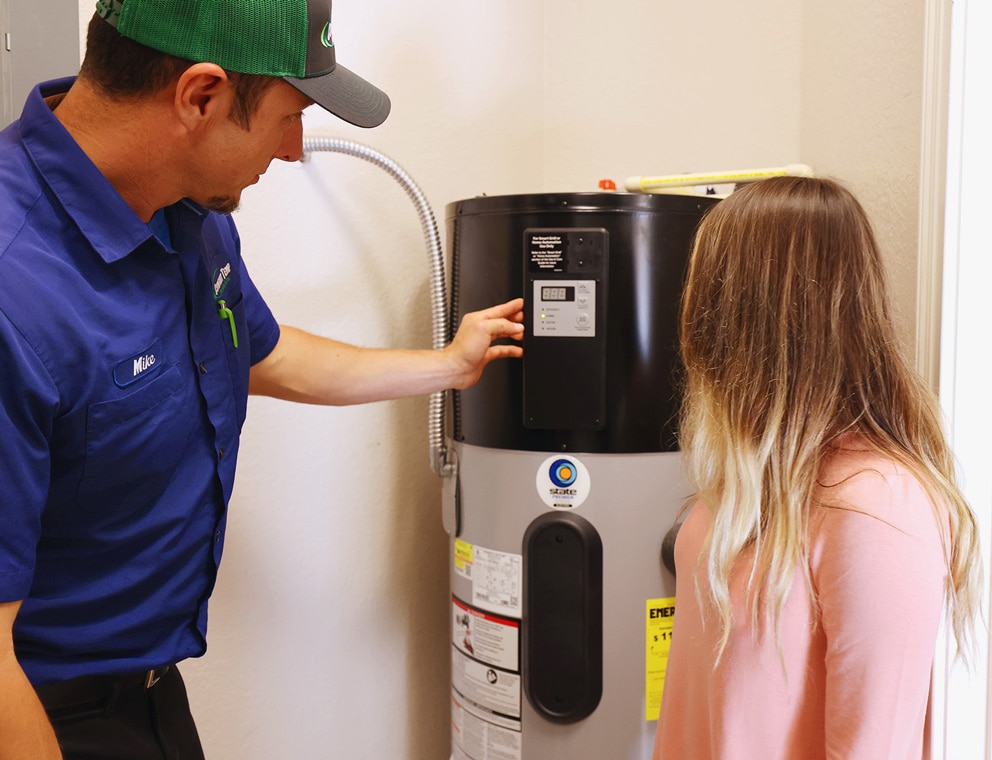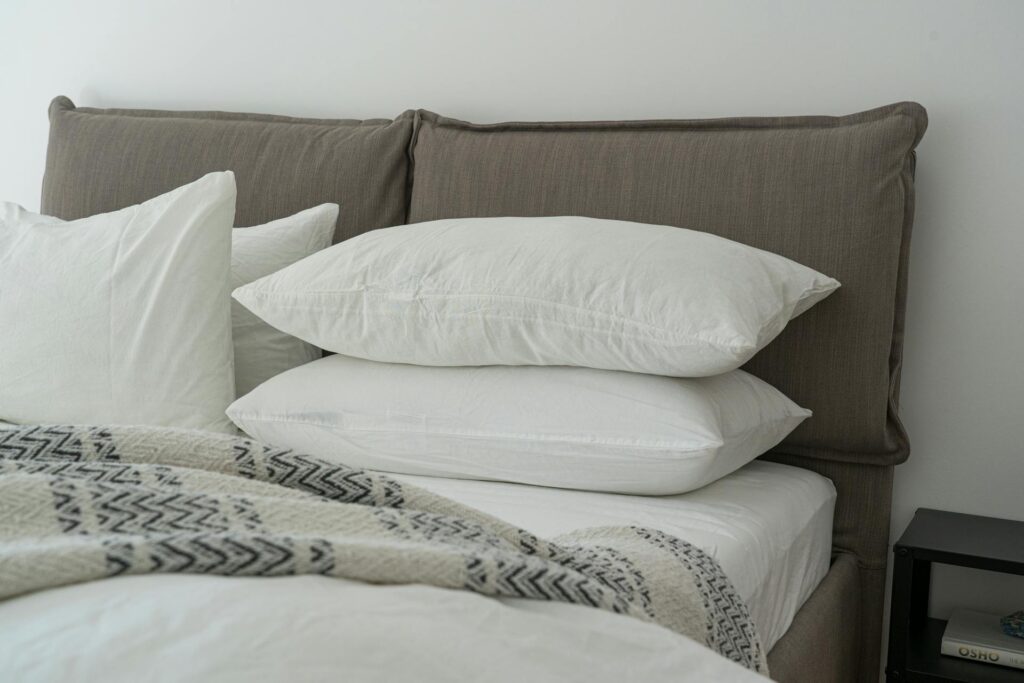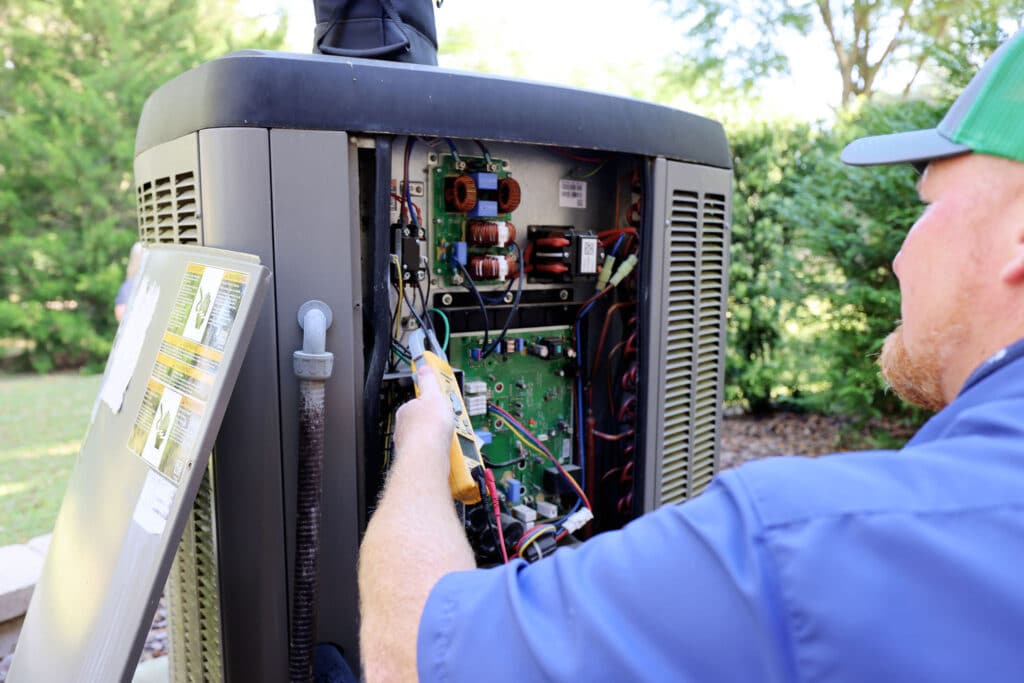Here in Gainesville, Florida, we know a thing or two about humidity. During our hotter months, stepping outside at pretty much any point in the day will quickly give you frizzy hair and sticky, sweaty skin. But what does humidity do inside your home? If kept at the right levels, it’s beneficial for your air—but too much or too little and you risk damage to your home and your health. Read on to learn why your home’s indoor humidity level is not something you should ignore.
Humidity Levels
According to the Mayo Clinic, humidity—defined as the amount of water vapor in the air—should be kept at about 30–50% inside your home. If your home has too much humidity or not enough, it can have adverse effects. If you’re wondering how much humidity is in your home, you can use a hygrometer to test your indoor air and see if you fall within ideal, high, or low humidity levels.
Too Little Humidity
We often don’t think low humidity is an issue. However, insufficient humidity in your home can dry out your skin, lips, and eyes, cause coughing and sore throats, and make the home feel colder than it actually is. Your home’s interior wood can crack and warp without moisture, and floors begin to separate if not dealt with quickly. To bring your home’s moisture levels back up to where they should be, a humidifier can be added to your HVAC unit.
While Florida is a high-humidity region, don’t fall into the common misconception that our homes can’t suffer from low humidity levels. Florida homes are susceptible to low humidity—especially during our dry winters.
Too Much Humidity
Your home is most prone to high humidity levels during spring and summer when the temperatures rise and rain is common. If your AC goes out or you turn it off, it can only make things worse as the humidity sits longer in your home. The biggest threat excess indoor humidity creates is an all too hospitable environment for dust mites, mold, and mildew to grow.
As contaminants spread in the air and within the walls of your home, they cause hazardous health issues such as respiratory issues, coughing, and shortness of breath. Using your air conditioner regularly and investing in a dehumidifier helps combat the warm air and the excess humidity by collecting the extra moisture from the air.
How to Prevent Mold & Mildew Growth in Florida Homes
Florida is notorious for high humidity levels. As we mentioned above, this humidity can cause mold and mildew growth—especially in your air ducts—and cause a myriad of health and air quality issues. Preventative measures can help clear your air ducts and prevent decreased air quality in your Florida home.
Constant Airflow
Humidity and temperature are the two main factors that dictate the growth in your air ducts. For this reason, it is vital to make sure you have constant airflow through your ducts. Leaving your AC on reduces both the temperature and dampness levels of your home. Without these factors, you can prevent growth from starting in the first place.
Although it may not seem to pose a problem in Florida since many of us keep our AC on year-round, you may turn it off for an extended, out-of-town trip to save money and energy. This can make the air stagnant and lead to growth formation while you’re away—and no one wants to return to a moist, mildewy home.
Air Filters
Air filters are your main line of defense against any allergens or growth particles that may be in your air ducts. They trap small particles and keep them from entering your home. HEPA filters are known to be the most efficient in removing growth particles from the air.
Over time, these filters can wear down or get clogged up. This both reduces the efficiency of your HVAC system and increases the risk of growth in your ducts. This is why you must have a consistent, frequent schedule to replace your air filters. High-quality air filters, like the filters Comfort Temp installs, may only need to be replaced a couple of times a year at most.
Air Duct Cleaning
One of the most important things you can do to prevent growth in your air ducts is to have regular air duct cleaning. Not only will cleaning your air ducts help your AC run more efficiently and reduce your energy bill, but it will also remove any allergens, dust, or growth particles that may be present.
Air duct cleaning is a task best left to professionals. Trying to clean your air ducts yourself could actually make them more dirty or, worse, cause injury to yourself. When done by professionals, you should not need your air ducts cleaned for another 3 to 5 years.
Humidity Control
Ultimately, protecting your air quality all comes back to your home’s humidity levels. Mold and mildew growth needs about a 60% humidity level to spread, and the average Florida summer day can have humidity levels ranging from 60% to 100%. This makes growth in air ducts a common problem in Florida homes.
While your AC works hard to reduce the dampness of your home, these high humidity levels can cause air condensation in your air ducts. As we mentioned earlier, an indoor humidity level of 30–50% is ideal and will ensure you stop growth before it starts.
If you’re concerned about humidity levels in your home or want to reduce air duct condensation, investing in a dehumidifier system with Comfort Temp can help further reduce the humidity affecting your central AC.
Comfort Temp Makes Your Home Comfortable
Our expert team at Comfort Temp knows how to help you maintain optimal indoor air quality at your home. We can test to find your home’s humidity level and treat it as needed through air purifiers, filters, germicidal lights, ventilation systems, humidifiers, and dehumidifiers. Contact us today, and get back to breathing right at home!


